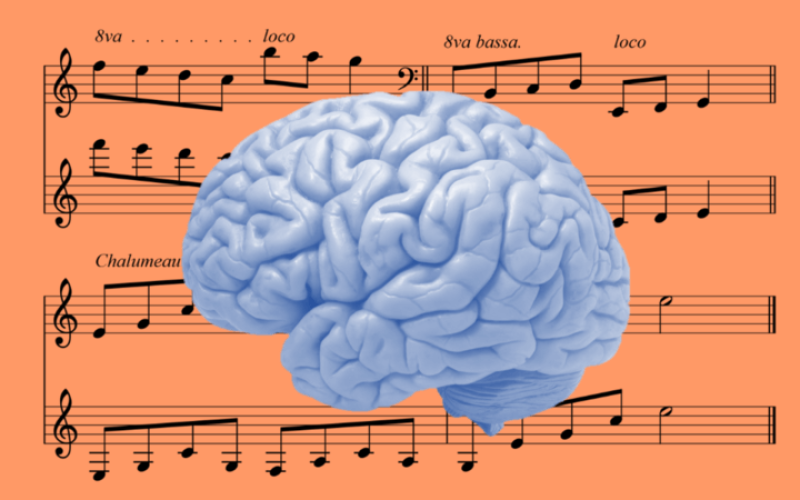In the eternal search for understanding what makes us human, scientists found that our brains are more sensitive to pitch, the harmonic sounds we hear when listening to music, than our evolutionary relative the macaque monkey. The study, funded in part by the National Institutes of Health, highlights the promise of Sound Health, a joint project between the NIH and the John F. Kennedy Center for the Performing Arts that aims to understand the role of music in health.
“We found that a certain region of our brains has a stronger preference for sounds with pitch than macaque monkey brains,” said Bevil Conway, Ph.D., investigator in the NIH’s Intramural Research Program and a senior author of the study published in Nature Neuroscience. “The results raise the possibility that these sounds, which are embedded in speech and music, may have shaped the basic organization of the human brain.”
…
Earlier this year, other scientists from around the U.S. applied for the first round of NIH Sound Health research grants. Some of these grants may eventually support scientists who plan to explore how music turns on the circuitry of the auditory cortex that make our brains sensitive to musical pitch.
Read full, original post: The Human Brain Is Uniquely Tuned for Musical Pitch































